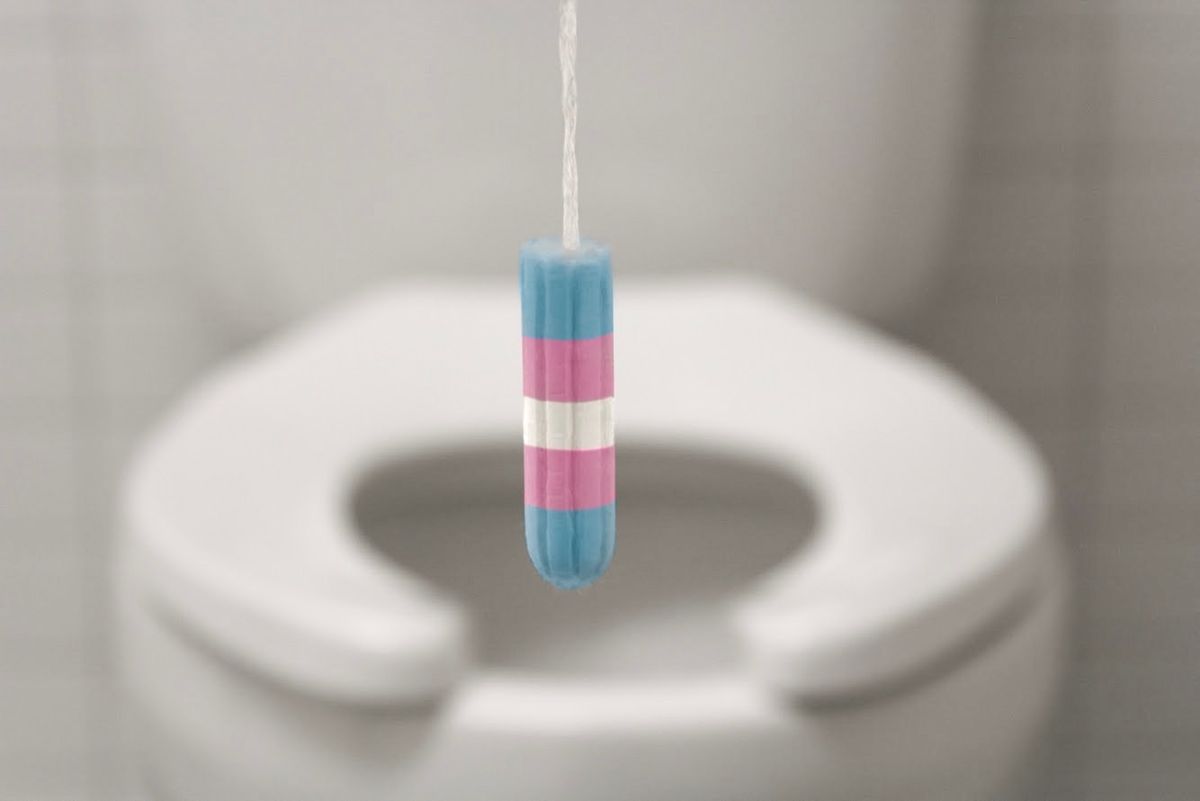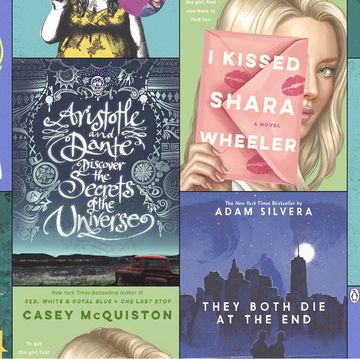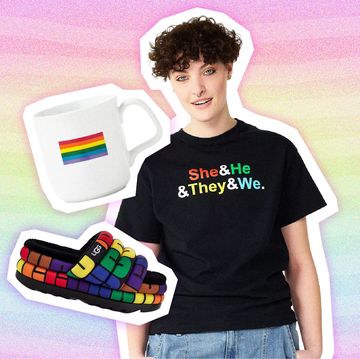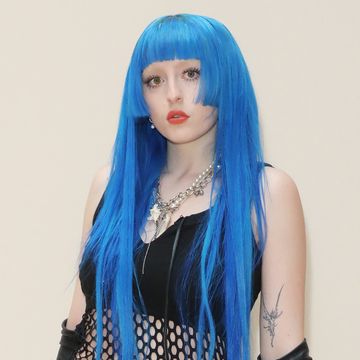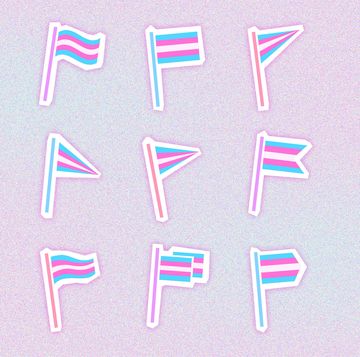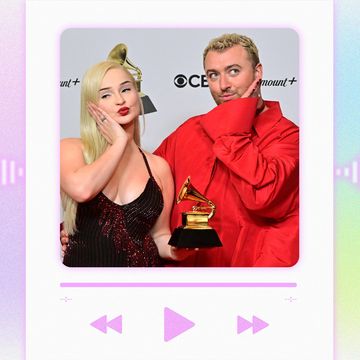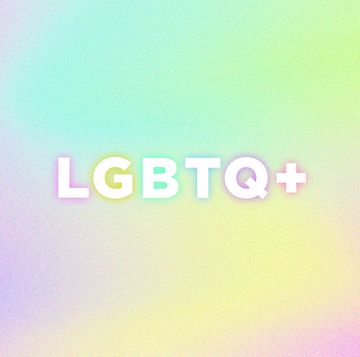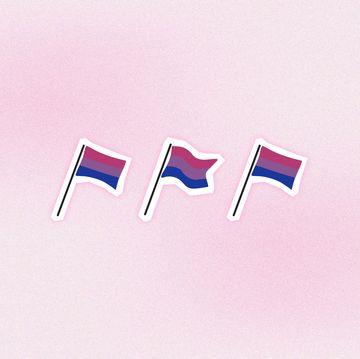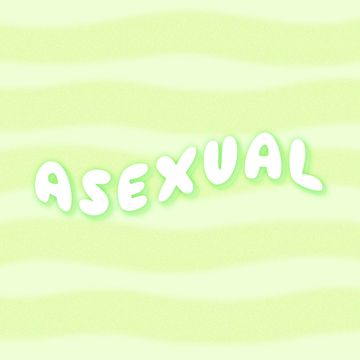Periods are being talked about in public more and more. From Amy Schumer discussing tampons on 'SNL' to documentaries about periods winning awards at the 2019 Oscars, the topic seems to be leaking into the public consciousness. But in between the jokes about women always having a spare tampon for a friend and calls to help menstruating girls in India, we’re forgetting an important piece of the conversation: Not all people who menstruate are women.
When I was 15 and looked down at the brown blood spot on my underwear for the very first time, I felt like part of me had died. Before I started menses, I was happily living as an androgynous tomboy who didn’t care about what the world thought of my gender. But after having been told constantly that periods are about womanhood – by friends, the media, and advertisements – I was crushed when I started bleeding. I felt like I had no choice but to live my life pretending to be someone I was not.
Almost one decade later, I finally gathered the strength to come out to the world as trans, and because of the violence and transphobia that I have experienced since coming out, I have committed my life to creating more spaces for folks like me to be celebrated for who we are. So, when I hear the media talk about periods and reference only girls and women, or when I find out that International Menstrual Hygiene Day was awash in a flood of feminine rhetoric, I am consistently reminded that the world does not believe that I exist.
More From Seventeen

So, to all of the trans, nonbinary, intersex, and agender menstruators out there: I’m here to remind you that you DO exist, you ARE important, and together we can get through our menstrual cycles, one tampon at a time.
Here are a few period tips, from one trans menstruator to another...
1. Your period does not define who you are
Getting my period at 15 is what triggered a long road of self-doubt and isolation because I had heard all my life that menstruation and puberty were the marks of “womanhood." It took almost ten years to finally free myself from the idea that getting your period defines who you are. Just because the world seems saturated with the message that menstruation = “a girl’s thing” does not mean that your period is inherently “feminine” or an indication that your identity is wrong. Men can menstruate. Non-binary folks can menstruate. Intersex people can menstruate. Agender people can menstruate. The fact that an organ in your body has the ability to shed its lining every once in a while does not determine who you are as a person, or how the world should recognize you.
2. Testosterone does not always stop your cycle
When I first posted my free-bleeding photo to raise awareness that not only women menstruate, I had tens of thousands of comments asking me some version of, “If you don’t like your period, then why don’t you just take testosterone?”
Aside from the fact that not all trans and non-binary people have the financial means or desire to take hormones, testosterone doesn’t always stop your cycle. In fact, it can sometimes make your period even longer and more noticeable.
Before I started testosterone, I had a moderate 3-5 day cycle that came with few side effects. But after 3-4 months on hormones, my period became extremely irregular, lasted up to two weeks, and caused the worse cramps I’ve ever experienced in my life. This continued for the six months I was on testosterone and hasn’t slowed down since I had to stop hormones due to financial and insurance issues.
My story is not unique – there are many reports of folks who have been on testosterone for years who still get their cycle, just as there are stories of people who never bled again after the very first shot. What you personally will experience with your own body can vary significantly, and since there are few studies on testosterone’s effect on the nonbinary or trans body, there is no way to predict whether taking testosterone will stop your period or not.
For more information on this, check out the helpful resources at Clue.
3. Reusable and long-lasting products can keep you from having to change out your products in a men’s bathroom stall
If you’ve ever used men’s bathrooms on your cycle, you’ve probably experienced the fear of sneaking in a tampon and praying there’s a single stall available. Or maybe you’ve trekked those few terrifying feet from the stall to the wastebasket with a crumpled, bloody pad in hand hoping no one sees what you’re holding. The fear of violence is real, and many of us have the scars (both emotional and physical) to prove it.
After being called a “tr*nny” and “f*ggot” one too many times while trying to deal with my period, I’ve switched to predominantly using reusable products that last up to 12 hours, allowing me to only have to change out once a day. Menstrual cups or soft cups can be a good alternative if you can afford one or if they work for your body. The major downside to cups over pads and tampons is that they do require a direct interaction with your menstrual blood when you slide the cup in or pull it out. For me, the discomfort of a cup is far easier to deal with than the panic I used to experience changing my tampon 3-4 times a day in a men’s bathroom.
4. Gender-inclusive period products do exist!
If you’ve ever walked through the aisles of a CVS or Target and felt bathed in a relentless wave of pinks and purples, you know how difficult it is to find period products that don’t scream, “YOU’RE A GIRL.” But even in the depths of those “feminine hygiene” aisles, I promise you, gender affirming products do exist!
Thankfully, folks like us have increasingly more options when it comes to stemming our flow (if that’s what we choose to do). From menstrual cup companies who are committed to using gender neutral language and market a wide variety of colors, to period apps that collect information on menstruators of all genders, or even period boxers that are explicitly made for folks like us who experience dysphoria. Though these companies seem few or far between, they are out there. If you’re interested in learning more about what period companies are gender-inclusive and which products work best for dysphoria, you can check out the reviews on my website, Bleeding While Trans.
5. The dysphoria is real — be intentional in taking care of yourself when you’re on your period
Not only do we have to deal with cramps and mood swings during our periods, but we also have to deal with the crushing weight of anxiety that our bodies are wrong. Whenever I get my cycle, my boobs swell out and I can’t wear my favorite binder – so I have to feel the weight of my chest for 4-5 days while I try to remind myself that I’m not a freak, there’s nothing wrong with me, and that the anxiety will pass soon. The dysphoria we feel during our cycle is very much real and can be incredibly difficult to go through on top of all of the other side effects of periods, so please take the time to engage in some intentional self-care and remember:
Periods are temporary. Our identities are not.
Cass Bliss, aka The Period Prince, is a non-binary & trans period activist and artist. Follow their work on Instagram and their newly launch site, Bleeding While Trans.
